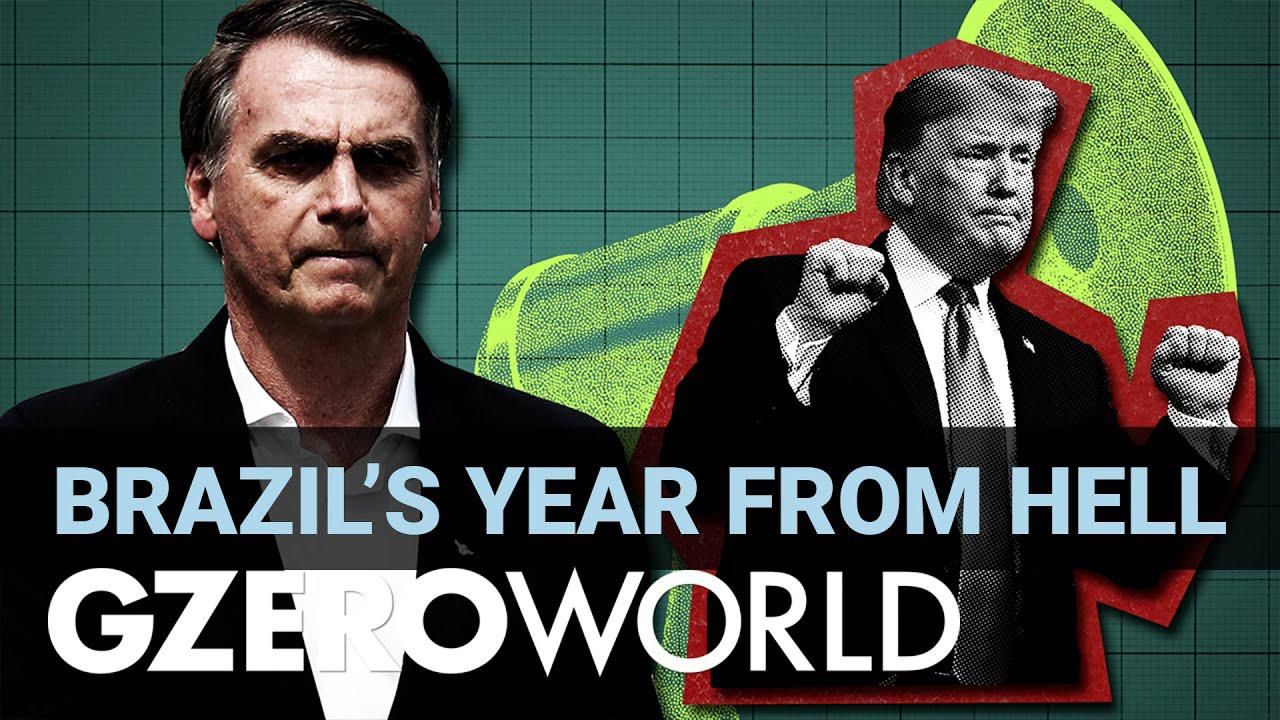GZERO World Clips
Can Brazil (and Bolsonaro) recover from a crippling year?

: Can Brazil, Latin America’s largest economy, recover from a crippling year? | GZERO World

Jair Bolsonaro had a Trump-like rise to power to become the president of Brazil, but some of the same attributes that got him elected have contributed to the many economic, political and public health crises plaguing his country. In addition to the COVID pandemic, Brazil is still suffering from the impact of its worst ever recession which began in 2014. Bolsonaro promised to turn that around—but economic growth remains low and unemployment very high. As for the Amazon, its rapid deforestation accounted for one third of the destruction of the world's tropical forests in 2019 alone. Bolsonaro is up for reelection next year, and it's going to be an interesting campaign. The likely challenger is Luiz Inacio "Lula" da Silva, who is as far left as Bolsonaro is right.
Watch the episode: Brazil on the brink
Microsoft unveiled a new set of commitments guiding its community‑first approach to AI infrastructure development. The strategy focuses on energy affordability, water efficiency, job creation, local investment, and AI‑driven skilling. As demand for digital infrastructure accelerates, the company is pushing a new model for responsible datacenter growth — one built on sustainability, economic mobility, and long‑term partnership with the communities that host it. The move signals how AI infrastructure is reshaping local economies and what people expect from the tech shaping their future. Read the full blog here.
On GZERO World, Finnish President Alexander Stubb says that Ukraine and its NATO allies are aligned on a path to a ceasefire but warns that Vladimir Putin will drag out the war, not because he thinks he’ll win… but because he knows he’ll lose.
At the 2026 World Economic Forum in Davos, GZERO’s Tony Maciulis spoke with Ariel Ekblaw, Founder of the Aurelia Institute, about how scaling up infrastructure in space could unlock transformative breakthroughs on Earth.
Who decides the boundaries for artificial intelligence, and how do governments ensure public trust? Speaking at the 2026 World Economic Forum in Davos, Arancha González Laya, Dean of the Paris School of International Affairs and former Foreign Minister of Spain, emphasized the importance of clear regulations to maintain trust in technology.